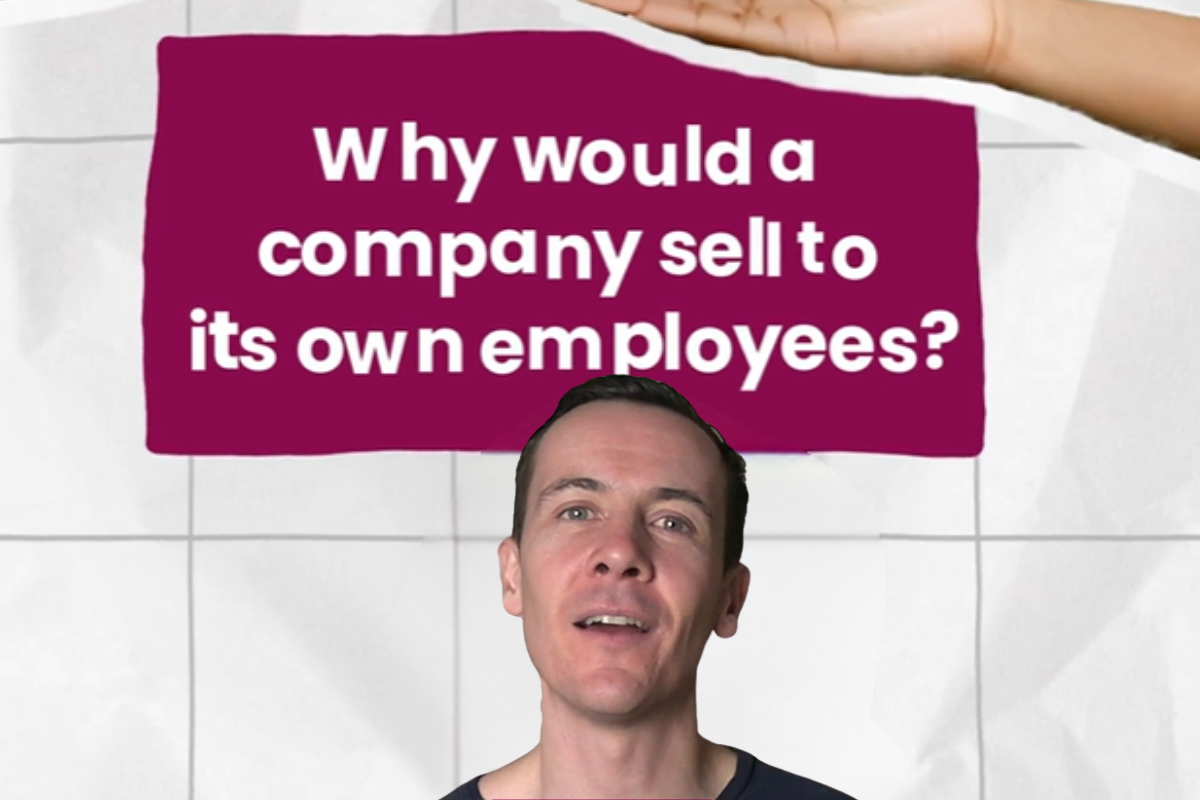By Jon Shell
Employee Ownership Trusts (EOTs) are coming to Canada! This note is intended to give business owners and their advisors a simple (albeit not short) explanation about what they are, and why they should care. I’m not a lawyer or an accountant, so I’ll try to use language that I understand (and that may in some cases not be technically perfect). So, don’t take this as legal advice, but as someone trying to explain this in a way I think I would understand.
A quick point up-front: EOTs are intended for succession — a way to sell a majority of a business to a company’s employees. They don’t help with selling a minority stake in the company — there are other approaches for that, like stock option plans and share purchase programs. So, unless you’re looking to sell your business, the EOT likely isn’t for you.
However, if you are considering selling your business in the next few years, you should be aware of the EOT. Employee ownership has a long track record of being good for employees, companies and communities, and as a result the UK and US provide significant tax incentives for business owners who sell to the workers. Canada is now following suit, exempting the first $10M of capital gains from income tax for sales to EOTs. This exemption is only available until the end of 2026, so there’s good reason to look seriously at the option.
“Employee ownership has a long track record of being good for employees, companies and communities, and as a result, the U.K. and U.S. provide significant tax incentives for business owners who sell to their workers.”
EOT-like structures are quite popular in other countries, and tax incentives are only part of the story. I’ll get into more detail about the legacy and resiliency benefits later, but here are a few stories featuring owners who have sold to their employees through this structure in the US and UK: Taylor Guitars (US), Emsworth Yacht Harbour (UK) and Craggs Energy (UK). In the US about 250 companies a year are sold to their version of the EOT, and in the UK over 300 companies have sold to their version in each of the last two years.
If you’re looking for more technical detail, I’ve added links at the end, including to the government’s own EOT explainer. If you scroll down and say to yourself “man, this is too long” feel free to skip to the end and click on one of those other links instead.
If you’re still with me, you likely have dozens of questions, so I’ll try to anticipate some of them in a Q&A format here.
Share with a friend
Related reading
Market study submission: Competition in financing for Canada’s SMEs
Small- and medium-sized businesses (SMEs) face significant barriers to accessing capital and we believe that the lack of competition in the banking sector is one of several important contributing factors. We provided comment on the Competition Bureau's upcoming market study on SME financing because we believe that unlocking capital for SMEs and entrepreneurs will strengthen the Canadian economy, bolster our sovereignty and provide more Canadians with pathways to building wealth. We look forward to seeing how the evidence collected will help inform policymakers interested in tackling this issue.
Watch the video: Why would a company sell to its employees?
Canada is facing a $2-trillion business handoff. What if employees owned more of it? In this video, our Director of Policy Dan Skilleter explains why a company would sell to its own employees, how it happens and who stands to benefits. Spoiler alert: employee-owned companies are shown to be 8-12% more productive, share more wealth with their workers, keep businesses Canadian-owned and shore up the resilience of local communities and the broader economy.
How Canada can curb the serial acquisitions quietly reshaping our economy
In many cases, threats to the affordability of everyday goods and services are the byproduct of what competition experts call serial acquisitions—a pattern of larger firms buying up a series of smaller players to try and corner the market. As Michelle Arnold and Kiran Gill explain, a fair and competitive economy does not emerge by accident. The Competition Bureau's proposed Merger Enforcement Guidelines will play an important role in preventing bigger firms from creating unfair playing fields that hurt Canadian small businesses, workers and consumers. The next step for the bureau should be aggressive enforcement of the new guidelines.


